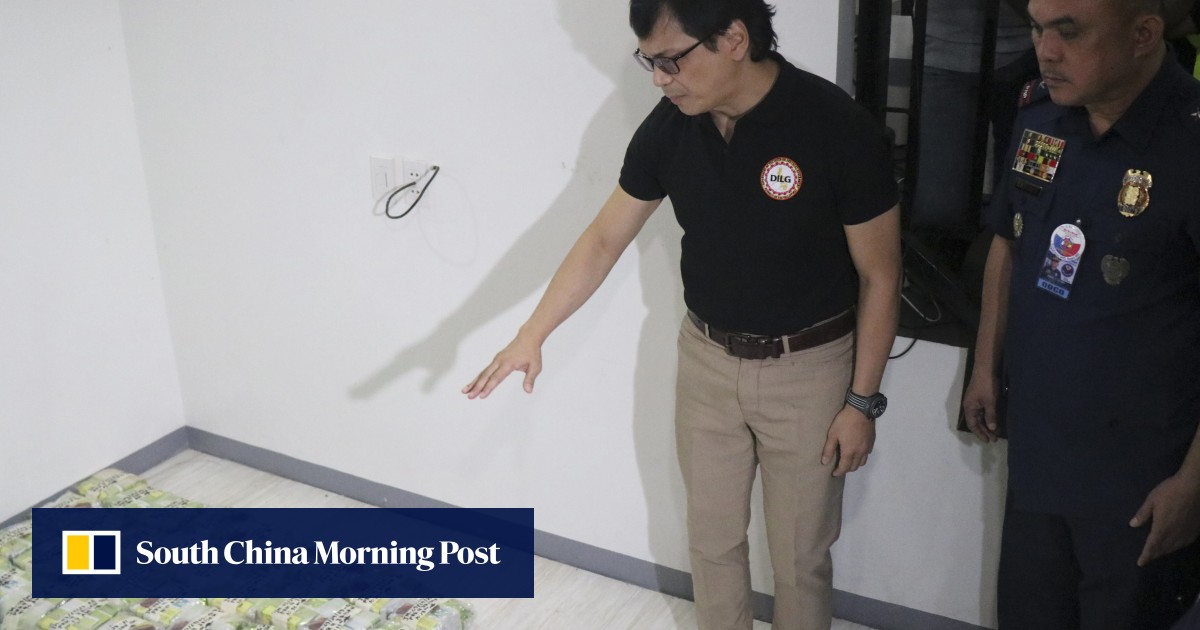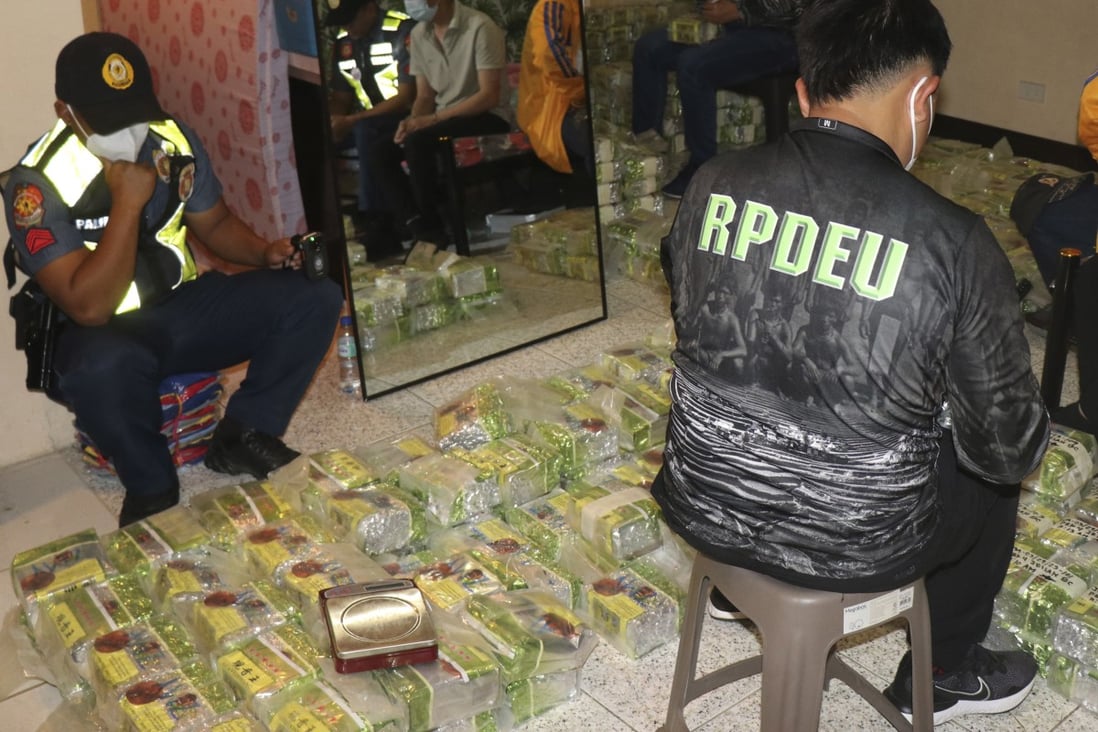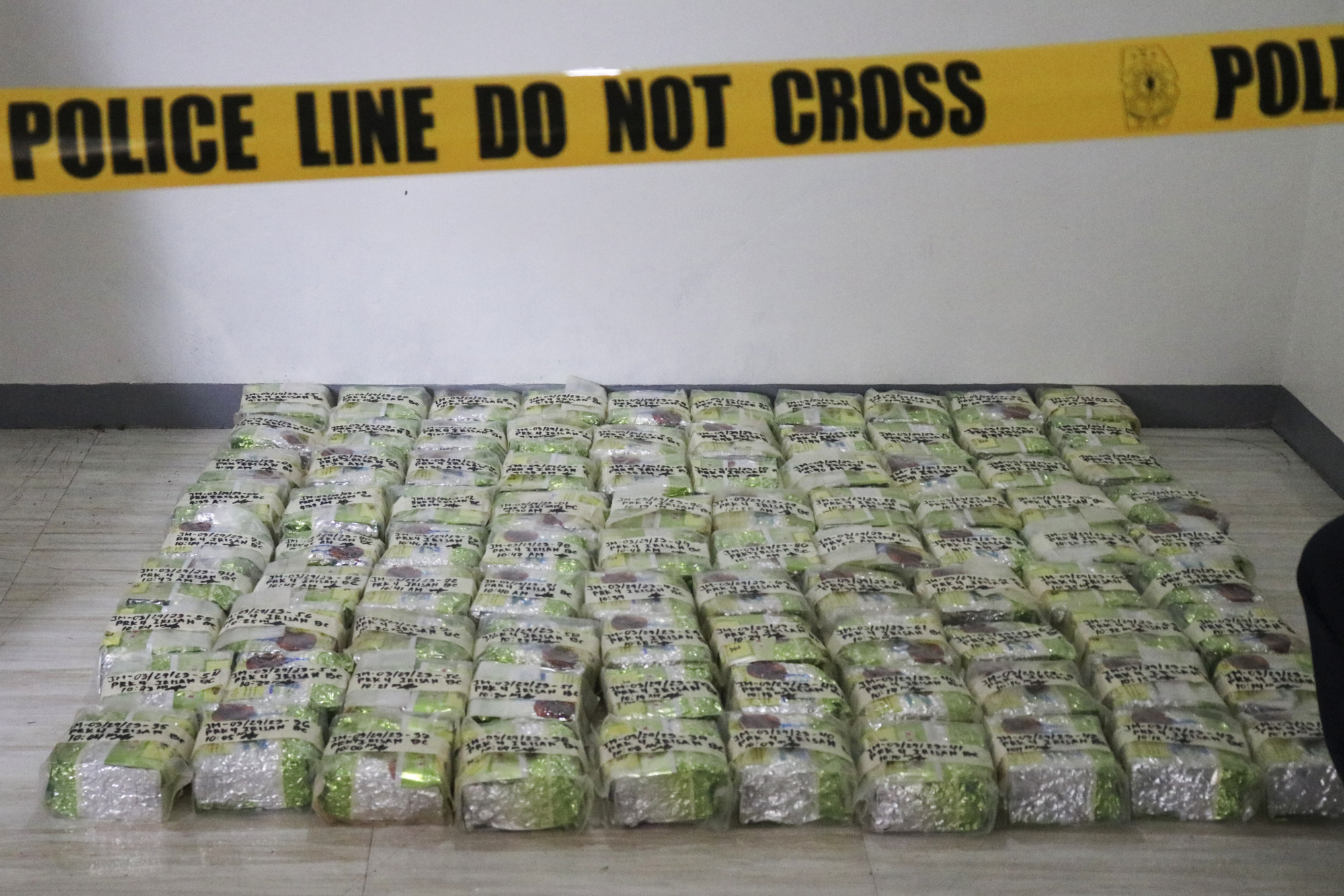Hamartia Antidote
ELITE MEMBER

- Joined
- Nov 17, 2013
- Messages
- 35,188
- Reaction score
- 30
- Country
- Location

Philippines arrests Chinese suspect over US$74 million worth of drugs
President Ferdinand Marcos Jnr has vowed to press on with predecessor Rodrigo Duterte’s crackdown on illegal drugs but says he will focus on rehabilitation.
- In one of the Philippines’ largest drug busts in years, police seized over 500kg (1,100lbs) of drugs stashed in tea bags and arrested a Chinese suspect
- President Ferdinand Marcos Jnr has vowed to press on with predecessor Rodrigo Duterte’s crackdown on illegal drugs but says he will focus on rehabilitation

The drug seizure in Baguio city had an estimated street value of 4 billion pesos (US$74 million) and was one of the largest in recent years. Photo: via AP
Philippine police seized more than 500kg (1,102lbs) of suspected methamphetamine concealed in tea bags and arrested a suspected Chinese drug dealer in a northern mountain resort city, police officials said.
The drug seizure in Baguio city on Wednesday had an estimated street value of 4 billion pesos (US$74 million) and was one of the largest in recent years, officials said.
A drug syndicate apparently hid the suspected drugs, locally known as shabu, in Baguio, a popular tourism destination known for its mountain scenery and pine trees, and not in metropolitan Manila due to an ongoing anti-drugs crackdown in the capital region, Interior Secretary Benhur Abalos and police officials said.
President Ferdinand Marcos Jnr, who took office in June, has vowed to press on with his predecessor’s crackdown against illegal drugs, which left thousands of mostly petty drug suspects dead, but said it would be done differently and focus more on rehabilitating drug dependents.

A drug syndicate apparently hid the suspected drugs in Baguio, a popular tourism destination known for its mountain scenery and pine trees, and not in metropolitan Manila due to an ongoing anti-drugs crackdown in the capital region. Photo: via AP
Under former president Rodrigo Duterte, more than 6,000 mostly poor suspected drug dealers were killed in reported clashes with law enforcers.
The widespread killings alarmed Western governments, including the United States, and sparked an International Criminal Court (ICC) investigation as a possible crime against humanity.
Duterte had denied condoning extrajudicial killings in his so-called war on drugs but had openly threatened to kill suspects until his final years in power.
Police say there have been considerably fewer killings of drug suspects under Marcos, but human rights groups have still expressed alarm over the continued killings under the government crackdown and asked Marcos to cooperate with the ICC in investigating the killings that took place when Duterte was president and a long-time mayor of southern Davao city.
After the ICC rejected a Philippine government appeal to stop investigating the Duterte-era killings, Marcos said on Tuesday that his administration would cut off contact with The Hague-based court.
After the ICC rejected a Philippine government appeal to stop investigating the Duterte-era killings, Marcos said on Tuesday that his administration would cut off contact with The Hague-based court.
“That ends all our involvement with the ICC because we can no longer appeal,” Marcos told reporters when asked to comment on the decision of the ICC appeals chamber.
“At this point, we essentially are disengaging from any contact, from any communication, I guess, with the ICC.”
When he was still president, Duterte withdrew the Philippines from the ICC’s founding treaty in 2019 after the court launched a preliminary examination into the thousands of killings under his anti-drugs crackdown.
Critics said then that Duterte’s move was an attempt to evade accountability. The ICC prosecutor, however, said the court still has jurisdiction over crimes alleged while the Philippines was still a member of the ICC, a court of last resort for crimes that countries are unwilling or unable to prosecute themselves.



